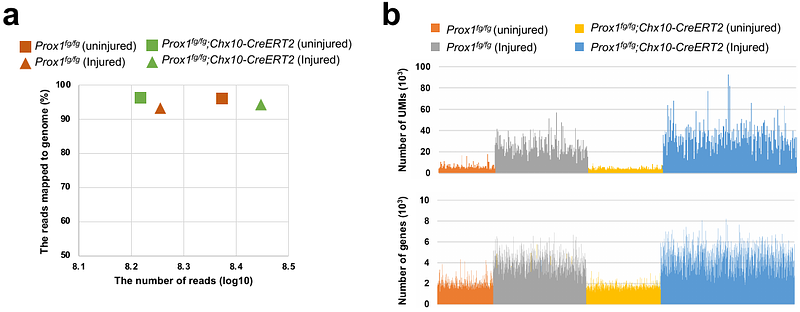Neuron-derived Prox1 suppresses injury-induced reprogramming of Muller glia to proliferative retinal progenitor cells

Neuron-derived Prox1 suppresses injury-induced reprogramming of Muller glia to proliferative retinal progenitor cells
Lee, E. J.; Kim, M.; Park, S.; Shim, J.-H.; Cho, H.-J.; Park, J. A.; Park, K.; Lee, D.; Kim, J. H.; Jeong, H.; Matsuzaki, F.; Kim, S.-Y.; Kim, J.; Yang, H.; Lee, J.-S.; Kim, J. W.
AbstractRetinal neurons can be regenerated from Muller glia (MG) in cold-blooded vertebrates but not in mammals, indicating the incompetence of mammalian MG for retinal regeneration. Here, we demonstrate that prospero-related homeobox 1 (Prox1) in MG is a factor that renders the mammalian retina incompetent for regeneration. Prox1 accumulates in MG in the degenerating human and mouse retinas but not in those in the regenerating zebrafish retina. Strikingly, we discovered that Prox1 in mouse MG originated from retinal neurons through intercellular protein transfer. Consequently, we induced the transition of MG to proliferative MG-derived retinal progenitor cells (MGPCs) in the injured mouse retinas by reducing the transfer of Prox1 to MG. Furthermore, we succeeded in regenerating retinal neurons and delaying vision loss in a retinitis pigmentosa disease model in mice by introducing an anti-Prox1 antibody that sequesters extracellular Prox1 in the mouse retina. Collectively, our results suggest that the regenerative potential of the mammalian retina can be restored by blocking the transfer of Prox1.
